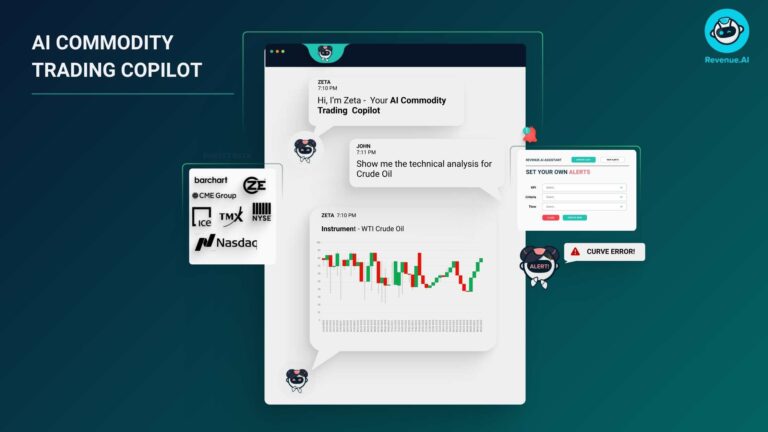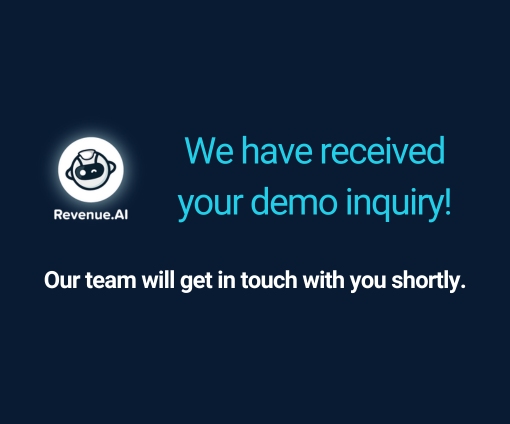
From Bean to Bar: The Cocoa Traceability Revolution
Artificial Intelligence (AI) is changing the cocoa sector, much like it changed the coffee industry. We’ve already discussed its transformative effects on the coffee industry, so if this is interesting, proceed to it here.
Copilots are revolutionizing various aspects of the cocoa industry, spanning from supply chain management to cultivation and quality control. However, this article analyzes the critical aspect of traceability in the cocoa industry through a narrow lens, highlighting how AI copilots are emerging as the foundation of this transformative journey.
First things first, what are AI copilots? Powered by robust Large Language Models (LLMs), Copilots are conversational interfaces that are becoming dependable collaborators in various industries. These copilots go beyond simply understanding human intent; they are evolving into intuitive partners capable of grasping emotions, context, and the intricate journey of cocoa from bean to bar.
As previously mentioned, in the chocolate industry, copilots are essential to traceability, sustainability, ethical sourcing, and meeting customer needs for supply chain transparency, as the main ingredient of chocolate is usually cocoa, right?
But you might be wondering where this need comes from.
Well, the agri-food industry is at a critical point in time, with growing demands for sustainability, safety, and transparency. The United Nations Sustainable Development Goals (SDGs), among other critical global goals, seek to encourage responsible consumption and production and are a major driving force behind this trend. If this is interesting to you, read more about it here.

For these reasons, companies are introducing AI-powered solutions to meet their business needs at an increasing speed. We’ve gathered some interesting examples for you.
For example, Chattermill has introduced Copilot, a proprietary generative AI solution that rewrites the rules in the world of business analytics. Read more about it here.
Another exciting example is Barry Callebaut. They have realized early that effective traceability across global value chains is essential to making sustainable chocolate the standard, and this can only be accomplished by working with all stakeholders. Barry Callebaut is spearheading and endorsing endeavors to actualize this objective, collaborating with pivotal stakeholders throughout the value chain to intensify endeavors to accomplish complete transparency and traceability of the cocoa supply chain. Read more about it here.
Additionally, a study was carried out using machine learning to enhance agricultural farming cultivation and water management for cocoa farmers in Côte d’Ivoire. As up to 20% of the nation’s production and 40% of its export revenue come from cocoa, the study aimed to ease this economic limitation. Read about this solution here. If you are unfamiliar with machine learning, this article uses chocolate to illustrate its purpose effectively, so go ahead and read it as well.
Using AI for Increasing Supply Chain Data Visibility
Let’s explore different stages of the data supply chain in commodity industries and understand how AI impacts each. Why start with this? AI copilots are only as valuable as the data sources from which they retrieve their insights.
They can connect to a variety of data sources, retrieve data via API calls and data lakes, or connect to a platform that is a one-stop shop for all the sources. Options are endless, but the only important thing is that the data is clean and analysis-friendly.
The data supply chain in commodity industries refers to data throughout the entire lifecycle of a commodity, from its origination and processing to transport, trading, and distribution. It involves capturing, analyzing, and utilizing data at various stages to optimize processes, enhance decision-making, and improve efficiency, with a clear delimitation of the organization’s roles responsible for a particular data set.
AI can help ease all the manual processes and increase efficiency with various use cases. We’ll review general AI applications first, then dive into examples with Copilots.
AI for Origination
The data supply chain begins with data collection at the point of origination. This stage involves gathering information about the production and extraction of commodities, such as agriculture, mining, or oil drilling.
AI technologies can collect real-time data from various sources, including weather conditions, soil moisture levels, equipment health, and production rates. Then, AI algorithms can analyze this data to identify patterns, forecast yields, and optimize production processes.
AI Enhancing Processing and Refinement
During the processing and refinement phase of the commodities, the collection, integration, and analysis of data through the various stages of the processing phase is crucial. It implies gathering data from multiple sources, unifying it, and using it to optimize and improve the efficiency of the production process.
AI can play a disruptive role in reducing downtime, saving costs, improving productivity, reducing waste, and improving product quality, ultimately ensuring smoother operations and early defect detection in a more sustainable production process and better business planning.
AI for Transportation
In the transport phase, data is generated by tracking the movement of commodities from their point of origin to their destination. This includes information on shipping routes, vehicle conditions, and delivery schedules.
AI-powered tracking systems can monitor shipments in real time, optimize routes to minimize fuel consumption and transit times, and predict potential delays or disruptions in the supply chain. AI can also analyze historical data to identify trends and improve transportation efficiency.
AI for Commodity Trading
During the trading phase, market data becomes critical. This includes commodity prices, demand-supply trends, geopolitical factors, and economic indicators. AI-driven algorithms can process vast amounts of market data and news in real-time, enabling traders to make faster and more informed decisions. AI can also recognize patterns and correlations in historical market data, assisting traders in predicting price fluctuations and market trends.
AI for Distribution
The distribution stage involves managing inventories, ensuring timely deliveries, and optimizing storage facilities. AI-powered inventory management systems can forecast demand, optimize stock levels, and improve distribution strategies based on historical sales data and current market trends.
AI can consider factors like seasonality, consumer behavior, and economic conditions to make smarter inventory decisions.
Now that we fully understand the AI applications in the commodity data supply chain, we can see how AI Copilots can help generate insights from them.
AI Copilots and Traceability
Now, it is more evident that integrating AI copilots is becoming critical in transforming the cocoa industry, enhancing productivity, efficiency, and, most importantly, traceability. These interfaces, powered by LLMs, sift through vast datasets, providing context-aware assistance and replacing manual work by automating time-intensive tasks.
The future promises even more increased sophistication, with AI copilots evolving into intuitive partners that not only understand the journey of cocoa but actively contribute to ethical and sustainable practices. Let’s dive into possible applications.
ZETA: The Ultimate AI Copilot for Cocoa Traceability
If this is your first time reading our blog, exploring our Commodity Trading Intelligence Copilot, Zeta, might interest you.
Zeta is your ultimate AI Commodity Trading Intelligence Copilot, streamlining tasks and automating manual work for traders, risk managers, and analysts in the cocoa trading process.

Zeta offers benefits such as accelerated data curation, real-time access to critical pricing information, and on-the-go access to a wealth of reports tailored for cocoa traceability. How? Let’s dive in.
Data Accuracy and Transparency
Zeta goes beyond enhancing data accuracy to provide real-time insights into the journey of cocoa. This capability ensures unparalleled transparency in the cocoa supply chain, offering stakeholders a clear view from cultivation to the final product.
Ethical Sourcing and Sustainability
By leveraging Zeta’s capabilities, stakeholders can effectively track the origin and conditions of cocoa cultivation. Zeta promotes sustainability, aligning with the ethical considerations crucial to the cocoa industry.
Consumer Trust and Transparency
Zeta-powered traceability builds consumer trust by offering a transparent view of the cocoa supply chain. The ethical and sustainable practices facilitated by Zeta reinforce consumer confidence in the origin and quality of cocoa products.
Supply Chain Optimization
Zeta’s AI algorithms are not limited to data accuracy but extend to optimizing logistics, inventory management, and demand forecasting. This streamlining of operations ensures efficient cocoa traceability, enhancing the predictability of the supply chain process.
Zeta is a vital tool for professionals in the business because of its exceptional characteristics that fully correspond with the broader goals of cocoa traceability.
Key Features and Benefits of Zeta for Cocoa Traceability
- Task Simplification and Automation: Zeta streamlines cocoa traceability operations by automating procedures and lessens manual labor. The route of the cocoa supply chain may be tracked more accurately and efficiently thanks to this simplification.
- Data Curation Acceleration:Zeta helps people process large datasets quickly by streamlining the data curation process. A key component of maintaining the integrity of the supply chain is cocoa traceability, which is improved by this acceleration of data curation.
- Real-time Access to Critical Information: Zeta ensures instant access to vital information about cocoa traceability because it is open around the clock. This feature makes it easier to make decisions quickly and gives stakeholders access to the most recent information.
- On-the-Go Analytics: By rapidly accessing analytics on cocoa traceability, users can enhance decision-making and speed up processes. Zeta’s on-the-go analytics offer a flexible and adaptable method for handling the intricacies of the cocoa sector, guaranteeing that information is easily accessible at the appropriate time and location, as you can get insights via any device, even your mobile phone.
Before we wrap it up, we’d like to dive into another important topic—data security.
Ensuring Transparent and Data-Secure Cocoa Production with AI Copilots
For enterprises, ensuring data security while using AI copilots requires a multifaceted strategy. This entails establishing strict access controls, providing in-depth training programs on the safe and secure use of AI copilots, and fostering a deep awareness of data security and privacy among staff members.
By carefully implementing these measures, companies can strengthen the safety and open use of AI copilots in cocoa traceability, building a barrier against illegal access and reducing the possibility of data breaches.
The Transformative Era: AI Copilots Shaping the Future of Cocoa Production & Cocoa Traceability
To sum up, the cocoa sector is undergoing a significant transition. Zeta’s advanced features are an excellent example of AI Copilots shaping this new development phase. It’s becoming increasingly apparent as we work through the complex world of cocoa traceability that AI Copilots are more than just the latest in technology. Instead, they are essential collaborators in promoting sustainability, ethical sourcing, and transparency.
Zeta, in particular, is at the leading edge of innovation and fits thoroughly into the cocoa-producing process. Its ability to improve data integrity, guarantee transparency, and support ethical sourcing procedures marks a paradigm shift in our thinking about going from bean to bar.
The previously mentioned advantages—supply chain optimization, ethical cultivation tracking, and real-time insights—are not merely extras; they are the cornerstones of a more robust and conscientious cocoa sector.
What is also important to note is that this revolutionary journey affirms the cooperative potential of AI Copilots working alongside human expertise, not replacing human talents. We are bringing in a future where traceability is synonymous with ethical and sustainable chocolate production as the cocoa sector accepts this integration.
The role of AI Copilots, like Zeta, in the dynamic cocoa production landscape is not only influencing the future but also paving the way for a more accountable, transparent, and efficient cocoa industry—one in which ethical considerations and sustainable practices are evident in every stage of the process, from cultivation to consumption.






